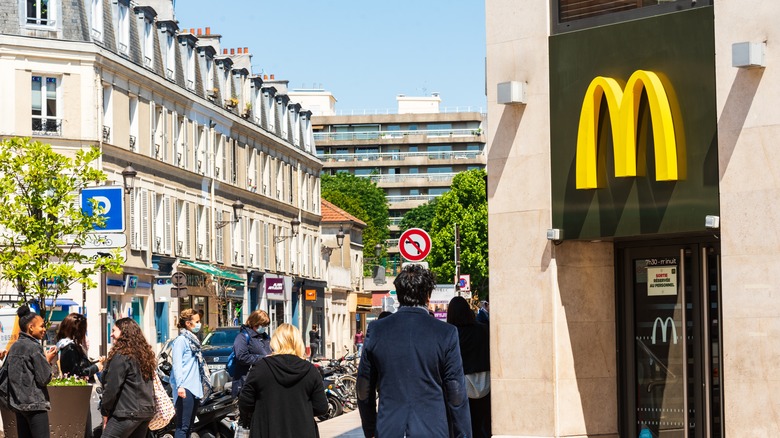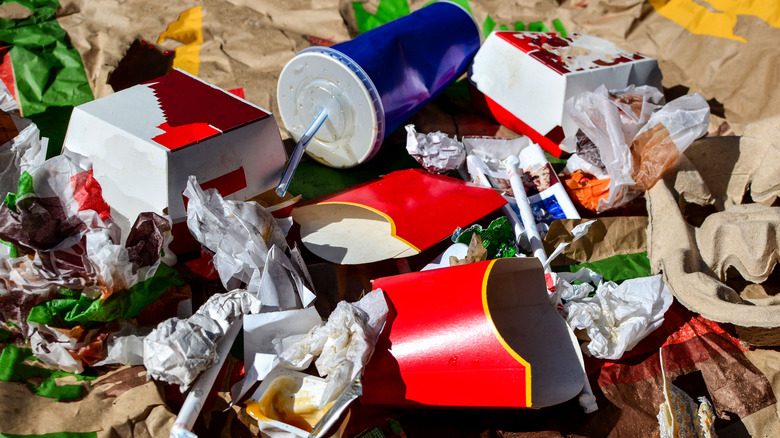A Big Change Is Coming To The Way Fast Food Is Served In France
France might be a country synonymous with haute couture and fine dining, but make no mistake, even French foodies get down with a fast-casual burger every now and then. Actually, it's a lot more frequent than that. The fast food industry has exacted a longtime chokehold on French foodies.
Back in 2013, NPR reported that fast food accounted for more than half of all restaurant sales in the country, a 14% year-over-year increase. According to France-based food writer Camille Labro, France is the second largest fast food consumer in the world after the U.S. Since the U.S. population is currently over 334 million and France's population exceeds 68 million, that's a lot of fast food meals sold, and a lot of accompanying waste.
France has taken strides to innovate the industry and minimize its environmental footprint. In 2011, McDonald's stores in France began sourcing their beef from French cattle, per Eater. Earlier this year, in January, France passed a law limiting the amount of plastic wrapping allowed on fresh produce in supermarkets.
The BBC says the new rule was estimated to reduce plastic waste by a whopping one billion pieces by the end of the year. (Those shrink-wrapped sleeves around cucumbers are a goner.) Now, France has just announced perhaps the most revolutionary regulation in the global fast food industry history.
Fast food industry (literally) cleaning up its act
The French government has officially banned all single-use plates, cups, and utensils at dine-in fast food restaurants, according to The Guardian. From now on, if you're enjoying a burger on-site, you're eating off of washable, reusable serveware. Technically, that burger is still allowed to be wrapped in paper, but it can't come tucked inside a cardboard box.
Per the rule, all restaurants with over 20 seats are required to provide reusable serveware. This includes larger chains like McDonald's, Burger King, Subway, and Starbucks, but also applies to smaller eateries like "work canteens," sushi spots, and bakeries.
It would be impossible to overstate how impactful this regulation will be for the environment. France is home to around 30,000 fast-food establishments which crank out an estimated six billion meals every year. It's the unofficial industry norm for fast food joints to serve meals in layers of paper wrapping and cardboard boxes on a tray that will be dumped directly into the garbage post-meal. Per The Guardian, 55% of the total waste (nearly 200,000 tons annually) generated by French fast-food restaurants comes from dine-in disposables.
France's new rule — which takes effect on January 1, 2023 — marks another important landmark in the global fast food industry's eco-friendly facelift. McDonald's recently announced plans to go solar at hundreds of locations. Per Nation's Restaurant News, its supply chain buildings will rely on renewable energy, eliminating an nearly 190,000 tons of carbon dioxide emissions.

